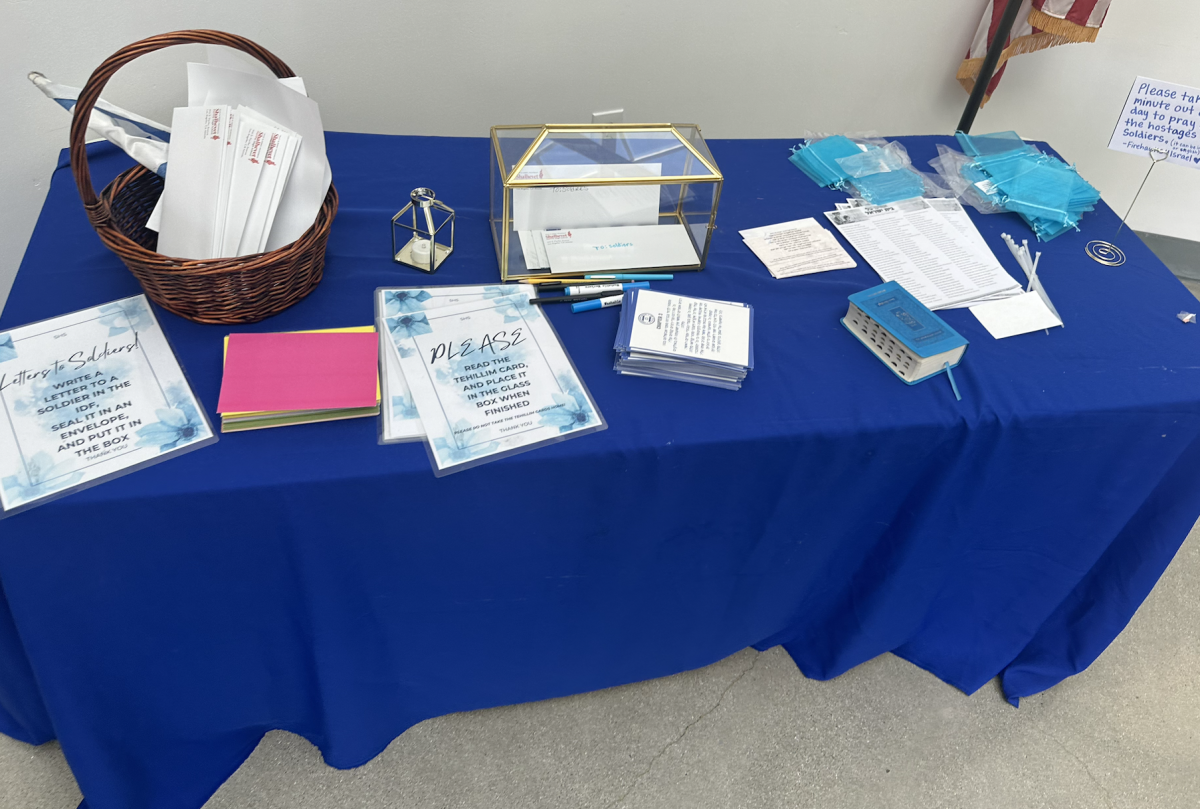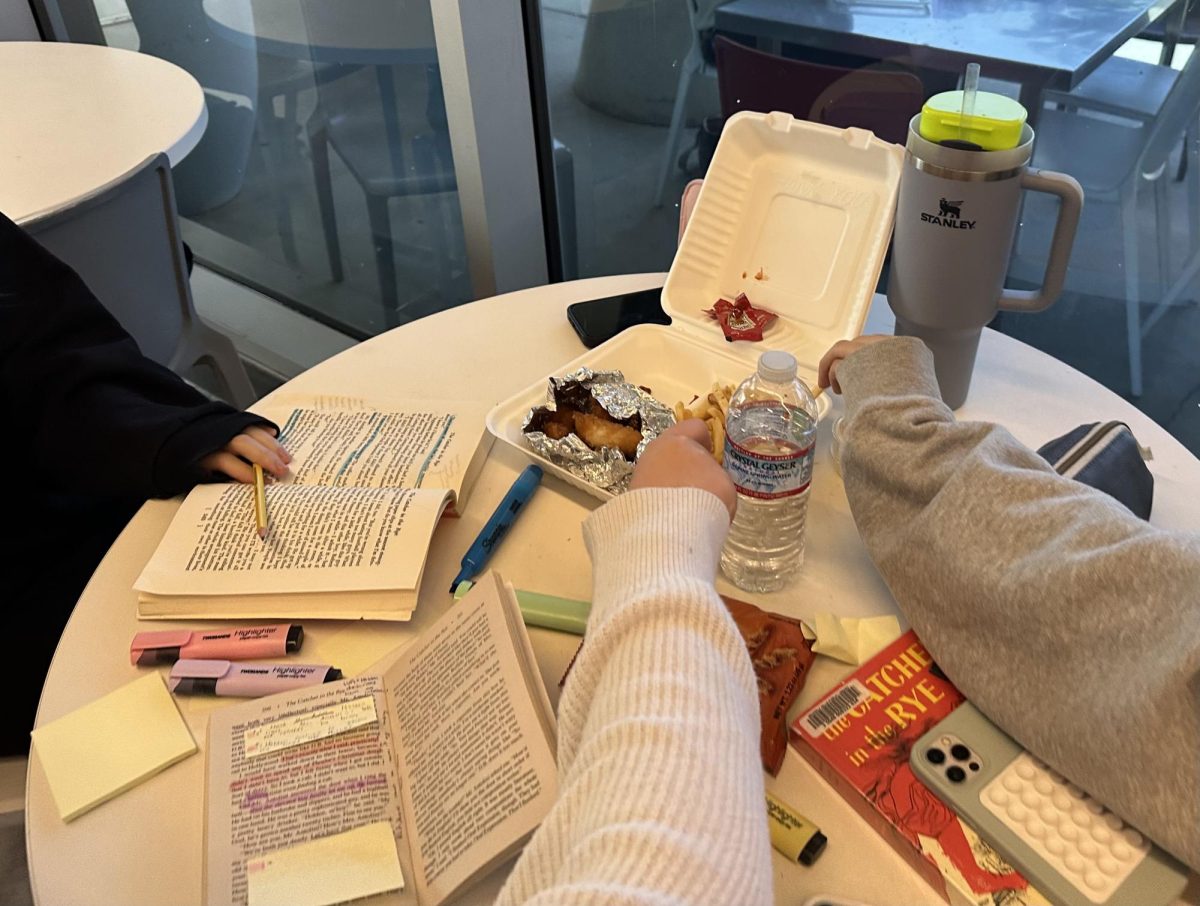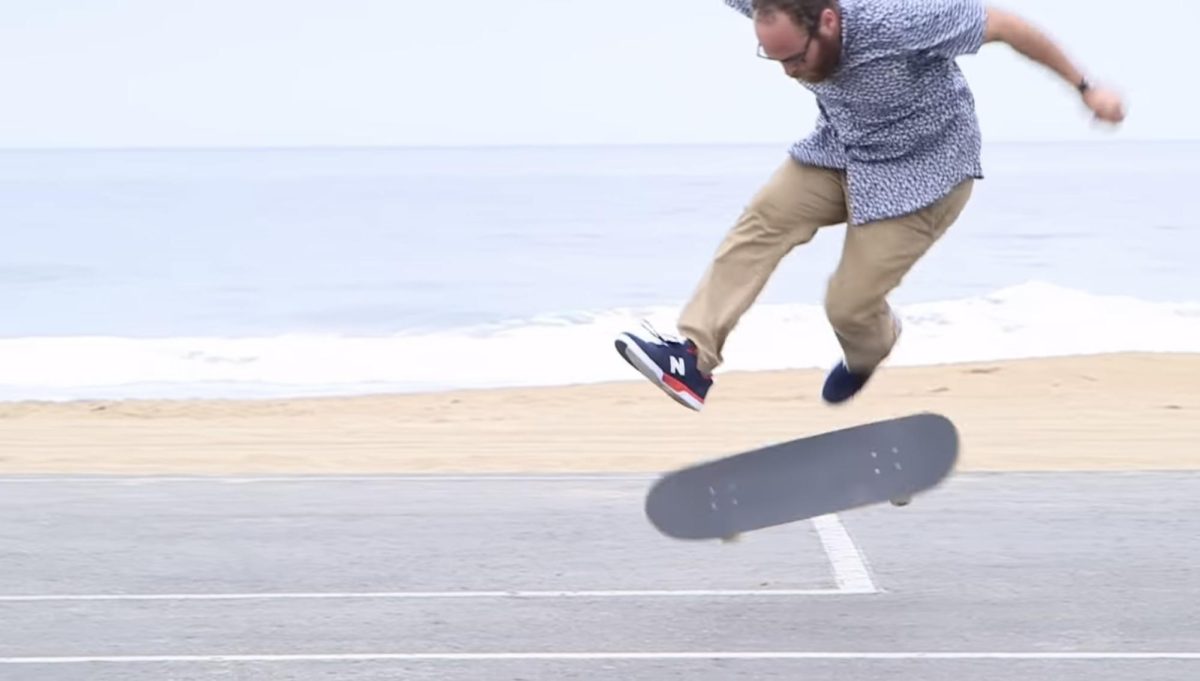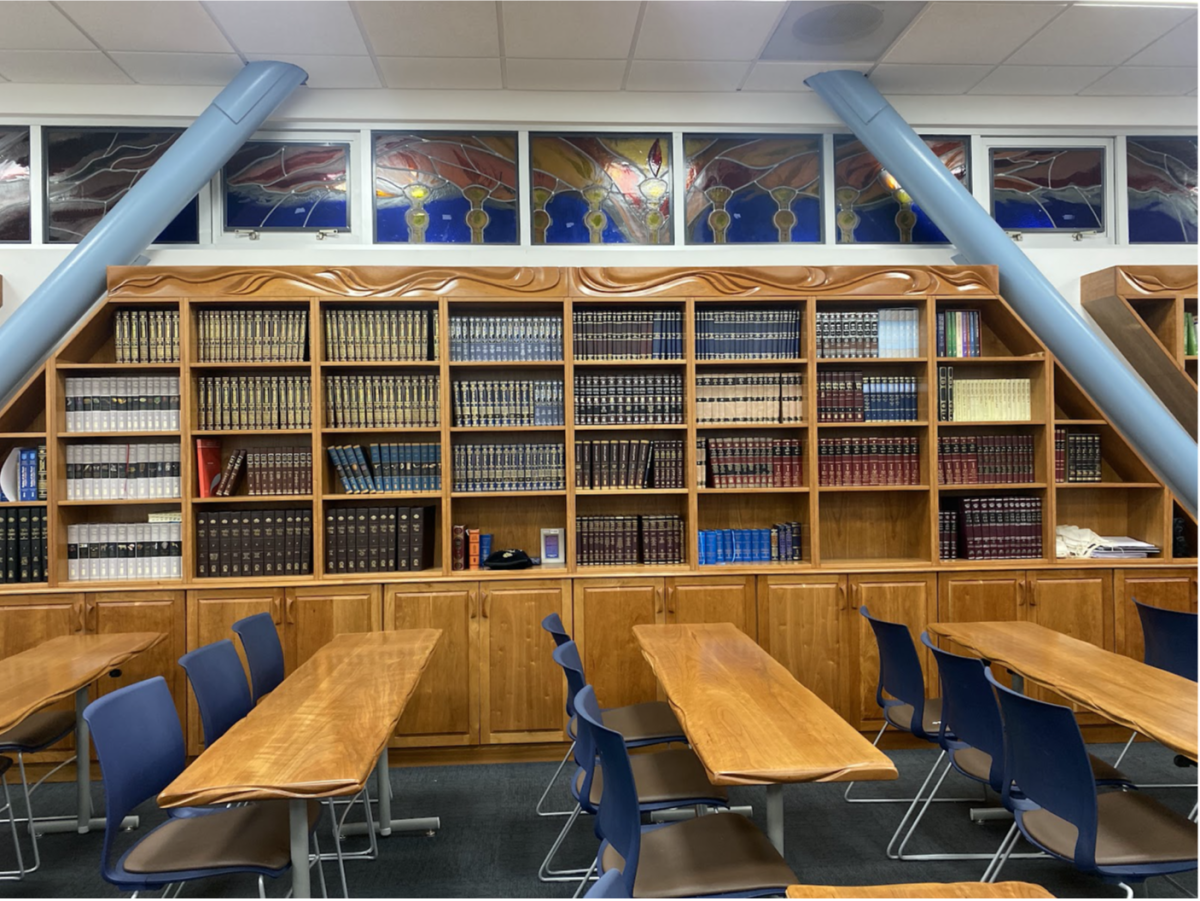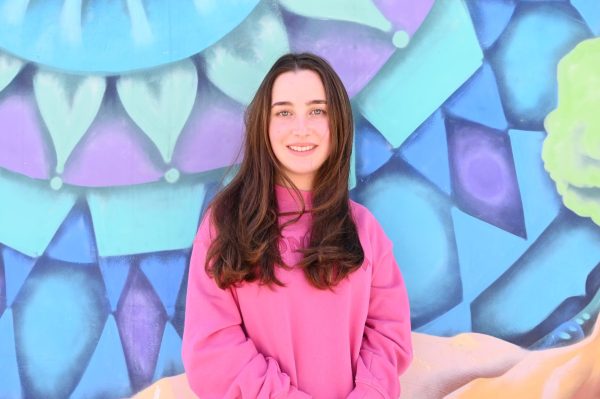More than seven months after a mob of terrorists decimated communities, families and lives throughout Israel, Shalhevet has taken numerous steps to commemorate and participate in its grief and resolve, and made itself over to reflect the new reality.
To show support for Israel and solidarity with the hostages, the school has redecorated its walls, added to tefillah, brought in speakers and redesigned the foyer. Some students and staff wear hostage necklaces and pins.
“Really, Israel is at the forefront of every initiative that Shalhevet does,” said sophomore Shevy Gomperts, vice president of Firehawks4Israel, the school’s Israel advocacy club.
“Now the whole entire focus is praying for the hostages, praying for the soldiers, and learning about Israel, and really making sure that every single student is involved and is educated and cares about the war and everything that is happening in Israel right now.”
Shira Elyaszadeh, the group’s president, described the transition as having been both abrupt and complete.
“There’s a before, and there’s an after,” Shira said. “I’ve seen a lot more engagement.”
In the foyer between the front door and the gym, Firehawks4Israel maintains a table offering materials to write letters to IDF soldiers; tape to write the number of days the hostages have been in captivity and then place on clothing; a glass box with tehillim cards to read in order; and more.
On the central spiral staircase, student artwork has been replaced by photos of Shalhevet alumni in the IDF except for on the top story, where pictures of the remaining hostages snake down from the turf toward the second floor. New Israeli flags have been hung up in various places throughout the Shalhevet building, including the gym.
Speakers from Israel and elsewhere – among them, IDF Reservist Rachel Lester a Shalhevet alumna and chief of English language social media for the war’s first six months; Ofri Reiner, a survivor of the massacre at the Nova music festival massacre; and Shai Klein, a photographer who documented both the terrorists and the dead – have visited and spoken. Sometimes more than one per week.
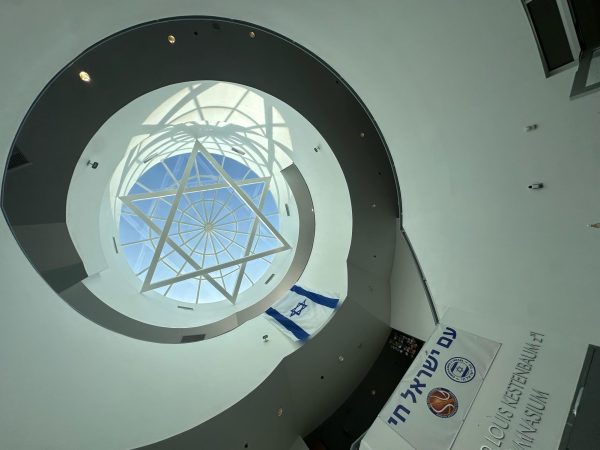
Each day in davening – Hashkama, Ashkenazi, and Sephardic – and in all Hebrew classes, additional tehillim are recited, along with the prayer for the soldiers of the IDF.
Senior Leeyah Klyman said that while always staunchly Zionist, she now has begun to take a more active role in Israel advocacy.
“I believe that actions speak louder than words,” Leeyah said. “Up until now, we’ve been passive.” Since Oct 7, however, “we’ve been doing a really great job playing our part.”
After the initial shock and horror of the attack, all the students interviewed for this article felt that the continued imprisonment of over 100 hostages had not been emphasized enough in the wider world. They said that by wearing hostage necklaces, they hope to remind others about the situation in Israel and demonstrate their continuing solidarity.
“Even though there’s lots of things happening and we’re moving further away from the war, we haven’t forgotten,” said junior Eliana Deitcher.
Freshman Eliam Mizrachi said that by wearing the necklace, she wants “to show that we’re here for the hostages and our heart is with them.”
Senior Yosef Harkham sells necklaces to members of the Shalhevet community. He began in early March when he was supplied by a friend of his mother. They cost $18 apiece, and proceeds sent to Israel.
The necklaces are also available to order online, though most buy in Israel. They are inscribed, in Hebrew, with the words Halev sheli shavui be’Azza, meaning “My heart is in Gaza,” underneath which is the date of the Hamas attack, and in capital letters in English, “Bring them home.”
Other students wear small yellow ribbon pins to show support for the hostages. Some wear both.
Leeyah, who wears the pin, says she does so as a reminder for herself. “It’s difficult to hold yourself accountable but this serves as a great way to do that,” Leeyah said. “People aren’t talking about it enough. It serves as a reminder of what our brothers and sisters in Israel are going through.”
On its March trip to Columbia University for the CSPA Spring Convention, members of the Boiling Point wore the pins and sometimes necklaces as well while on the Columbia University campus, and took photos there with an Israeli flag.
Members of the Robotics team on their trip in March wore the pins as well.
In Hashkama, an early minyan for students in AGS that starts at 7:20 every day, Leeyah reads aloud a prayer for IDF soldiers. She says that students began reading it immediately after the war broke out, and soon after she was asked to do it in Hashkama and has done so ever since. She feels that it is really important to have it read during davening and says it herself multiple times a day.
“There’s a sense of, we need to do this, this is important, this is Shalhevet,” Leeyah said.
The tehillim cards on the table in the foyer are laminated, stacked in numerical order so people can read just one, and after a student reads a card they place it in the box so everyone knows someone has said it.
After all of tehillim is read, the cycle starts all over again. Also propped against the table is a poster with photos of all the hostages. Shira said the table was set up at Rabbi David Stein’s behest for the Glouberman Basketball Tournament, and is maintained by the students of Firehawks4Israel.
When the tournament was over, Shevy approached Rabbi Stein, who is Dean of Academic Affairs, to ask for it to become permanent.
Firehawks4Israel members also paste a piece of tape labeled with the number of days since the hostages were taken on the entrance to the gym each day. The tape stickers were started by the mother of hostage Hersh Goldberg-Polin, and Shevy said they’ve been adopted with special fervor at our school.
Firehawks4Israel, she said, are “really trying to make it part of the culture of Shalhevet.”
Leeyah said more activity was better, and that it was all part of the same requirement in Israel’s, and therefore Shalhevet’s, new circumstances.
“We can’t stay silent, we can’t be passive anymore,” Leeyah said. “That time has passed, we need to be active, we need to show up.”

